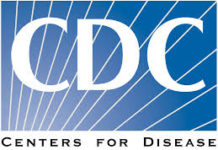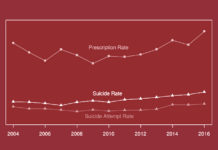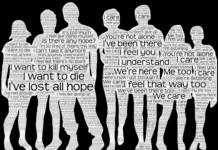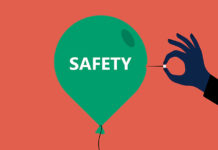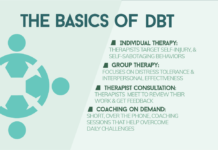David Foster Wallace: Suicide and the Death of Agency
Today is the 10th anniversary of David Foster Wallace’s suicide. While it’s not fair to build an entire theory on an incredibly complicated issue like suicide around one person, Wallace’s death should challenge the common narratives around suicide — that “mental illness” causes it and that “we can’t ever know why people do it.” Both of these are self-serving platitudes that are simply not true.
Victim Blaming: Childhood Trauma, Mental Illness & Diagnostic Distractions?
Why, despite the fact that the vast majority of people diagnosed with a mental illness have suffered from some form of childhood trauma, is it still so difficult to talk about? Why, despite the enormous amount of research about the impact of trauma on the brain and subsequent effect on behaviour, does there seem to be such an extraordinary refusal for the implication of this research to change attitudes towards those who are mentally ill? Why, when our program and others like it have shown people can heal from the effects of trauma, are so many people left with the self-blame and the feeling they will never get better that my colleague writes about below?
Robin Williams On Antidepressant at Time of Suicide
Robin Williams had "therapeutic" levels of the tetra-cyclic antidepressant mirtazapine in his blood at the time of his suicide, according to the coroner's report...
Suicide in the Age of Prozac
During the past twenty years, the American Foundation for Suicide Prevention and American psychiatry have adopted a "medicalized" approach to preventing suicide, claiming that antidepressants are protective against suicide. Yet, the suicide rate in the United States has increased 30% since 2000, a time of rising usage of antidepressants. A review of studies of the effects of mental health treatment and antidepressants on suicide reveals why this medicalized approach has not only failed, but pushed suicide rates higher.
The Creativity and Suicide of Robin Williams: A Phenomenological Study
My purpose in writing this case study is not to suggest that creativity is a mere byproduct of trauma, or to deny the role of so-called mental illness in suicide, but to situate these phenomena within the context of human lives. To render them humanly (rather than medically) intelligible. With his mind and body disintegrating, Robin Williams took his life to thwart the eradication of self.
Three Suicides: Honoring Lives Lost to Benzodiazepines
I am still trying to reconcile what these chemicals are capable of, how the urge can morph into an action, how we maybe just don’t understand suicide all that well. For me, the suffering was so intense it was too painful to stay alive. I understand how my friends felt in their last moments.
Hegemonic Sanity and Suicide
The “good” suicide attempt survivor wakes up in a hospital bed bathed in beautiful natural light, surrounded by the people who love them most, and they realize that their thinking was flawed and all those unsolvable problems can actually be solved if they are just compliant with medication and therapy. And then there's the “bad” suicide attempter who is angry that they lived, who challenges the status quo.
Suicide Rates Rise While Antidepressant Use Climbs
Multiple media sources are reporting on new data from the CDC revealing a substantial increase in the suicide rate in the United States between 1999...
Traditional South African Healers Use Connection in Suicide Prevention
Study finds that traditional healers in South Africa, whose services are widely used by the country’s population, perform important suicide prevention work.
Katharine Hepburn is Glamorous – Suicide is Not
What do you do when the media reports stories of children who have killed themselves on SSRIs? Position the stories of these children, not the drugs they were taking, as a suicide risk. Warn that more children will die if mouthy parents are allowed to speak and upstart journalists are allowed to report. And then position psychiatrists as the only people who can talk about suicide without producing an epidemic of self inflicted deaths.
Suicides Are Increasing – And So Are Antidepressant Prescriptions
Disturbingly, our study and others reveal that the black box warning is now ignored in many countries, since antidepressant prescriptions for children are on the rise again. Despite increasing certainty that antidepressants are ineffective and likely cause suicidal behavior in young people, psychiatry continues to claim that they reduce suicide risk.
Suicidal Tendencies, Part III: So, When Do I Get to Call the Cops?
What if the key to saving someone is to admit you are powerless to save anyone at all? What would that beckon us to change? A few years ago, I spent a substantial amount of time talking with a man who entered my life because someone in the mental health system told him I might be the one who could save him (or at least, that’s how he heard it). His name was David.
Germanwings Pilot Saw Psychiatrist Three Times, Doubled Antidepressant Before Crash
The man who deliberately crashed a Germanwings commercial airliner with 150 passengers aboard was actively in psychiatric treatment at the time, reported the New...
Antidepressants Do Not Prevent Suicides, May Increase Risk
When the CDC released data revealing an increasing suicide rate in the US, some experts, speaking to major media outlets, speculated that the increase...
Deadly Serious: Talking Openly About Suicide
The suicide crisis is real. The pain is real. The deaths are real. None of us can afford to stick our heads in the sand and pretend that this isn't happening. But the helplessness and confusion about what to do about it are also real. And that's why peer relationships and peer-developed modalities can be so helpful. Many of us have been there and are still alive to talk about it. We know what ways of relating gave us hope and helped us to continue on.
Risk of Suicide After Hospitalization Even Higher Than Previously Estimated
New analysis of post-discharge suicide rates finds estimates 6 times higher than recent studies.
Suicide in a Culture of Mandated Happiness – Who’s to Blame?
We live in a culture of mandated positivity and compulsory happiness, which somehow remains untouched by the current political, social, ecological and economic realities of the world. If you’re distressed, it must either be your bad attitude (which is a choice) or your broken brain (which is not a choice); god forbid we look anywhere outside the self.
Cognitive-Behavioral Therapy Halves the Risk of Repeated Suicide Attempts
A new study suggests that cognitive-behavioral therapy (CBT) may halve the likelihood of re-attempting suicide, for those who have attempted in the past.
Study Confirms Higher Suicide Risk for Sexual Minority Adolescents
Researchers report that sexual minority adolescents have considered, planned, and attempted suicide substantially more than their heterosexual peers.
Waiting for Gravity
Of course one wishes for an easy answer, but the things that conspire to drive a person over the edge are too numerous and varied ever to point and say, it was this one; one can never really be so certain. No one can say it wasn’t that one, or that it wasn’t really all of those together, or that, when it came my own turn for “insanity,” I wasn’t standing halfway over the edge already, waiting for gravity to kick in and for me to fall.
Rise in Suicides Baffles Military
The New York Times reports that the "baffling" rise in suicide rates in the U.S. military is not correlated to deployment, as is often...
Smoking Restrictions Linked to Reduced Suicide Rates
Smoking laws and cigarette taxes have strong links to suicide rates, according to psychiatrists from Washington University in St. Louis. Previous studies have presumed...
Alternatives to Suicide: Strategies for Staying Alive
For more than 7,300 days of my life, waking up the next morning required me to make a conscious choice to diligently pursue something — anything — other than my impulse to die. Maybe the best teachers of how to avoid suicide will not be the people who are afraid someone else will die, but those of us who can explain how and why we regularly choose to live.
ASIST Suicide Prevention Training: “Safe” for Who?
Ever since the cops and CPS were called on me by someone at an ASIST Suicide Prevention training, I've been trying to see it all as a gift. What better proof to counter those who claim it's "safe" to tell than what happened to me? What better evidence that our system responses are seriously off track? It wasn't safe. Not for me.
Dialectical Behavior Therapy Reduces Self-Harm and Suicide Attempts
A new meta-analysis finds that DBT reduces self-harm, suicide attempts, and reduces the frequency of psychiatric crisis service utilization.








